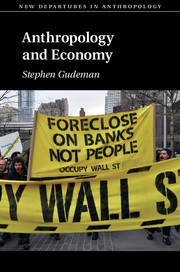6 - Colonizing
Published online by Cambridge University Press: 18 December 2015
Summary
At the outset of my fieldwork in Panama, I was puzzled by the continuing existence of the house economy. If we embrace market economies for their benefits, why do these economies dot the Latin American countryside? At the time, I did not know that my question could be posed about many rural areas of the globe. Even less did I realize that the persistence of the rural house reflects an inner process in economy. Only later did I see that anthropology at the margin reveals the tension that is found at the core of high markets. The process by which one part of economy draws from but needs and sustains the other continues today as markets expand in space and into the house.
Rice, rents, and Ricardo
At the time of my fieldwork, modernization theories were prevalent, and they offered a solution to the awkward presence of house economies. They are traditional systems. With capital investment, technical education (to enhance “human” capital), the proper incentives, and the improvement of infrastructure, such as upgrading roads and building market centers, house economies will disappear. Rural inhabitants will join market life and the growing world of high standards of living, as an early theorist of development once explained. Agricultural economists and development specialists used to tell me that the anthropologist's task is to discover the social rules, the cultural values, and the technical blockages that constrain market growth. I was never convinced by their vision, and fieldwork doubled my doubts. In the rural areas I knew, people worked very hard but were not “advancing” economically. Incessant work and abstemious behavior were not the keys to economic growth. When I do fieldwork in marginal areas, I often ask myself what I would do to “advance” were I in the people's position. I have never come up with a solution without invoking an outside contribution. Something more is required than individual effort, reinvesting, knowing how to look up appropriate technical practices, consulting with experts, securing outside capital, or finding the right combination of crops to plant. In the Panama countryside, the land was poor, roads were bad, and markets were not easily accessible. Without better local resources, a larger system of support, and willing consumers, I could not see how an individual could improve his economic position. Comparable issues were encountered in Colombia and other places.
- Type
- Chapter
- Information
- Anthropology and Economy , pp. 124 - 143Publisher: Cambridge University PressPrint publication year: 2016

